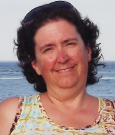Even though today I’m cancer-free, the experience of getting a cancer diagnosis and going through treatment leaves an indelible mark on your psyche—as well as your body—that time doesn’t erase. Once you have cancer, you become a cancer survivor, and that status doesn’t change. I’ve known many people who weren’t as fortunate as I am, so I’m grateful to wear the moniker, even as I struggle to come to terms with it.
Two years ago, I found a lump in my right breast during a self-exam and instinctively knew something wasn’t right. I have fibrocystic breasts, so I’m used to feeling lumps of various sizes and shapes, but this one felt different, so I immediately saw my gynecologist. Although the mammogram he suggested I have didn’t show any suspicious mass, the follow-up ultrasound I had did, and a biopsy of the tissue confirmed stage II triple-negative invasive ductal carcinoma.
I immediately had a lumpectomy, and even though the margins of the tissue removed were clear for malignant cells and there was no sign of metastasis, because my type of cancer is so aggressive, I was prescribed four rounds of ACT (Adriamycin [doxorubicin], cyclophosphamide, and Taxol [paclitaxel]) and four additional rounds of paclitaxel alone. I then underwent 33 days of radiation therapy. Despite 7 months of treatment and their subsequent side effects, hair loss, chemobrain, neuropathy in my feet (which I still have), and body-crushing fatigue, I managed to continue working and consider myself lucky to have coped so well.
The Fear of Cancer Remains
Even though I’m through treatment and my prognosis is good, I still can’t help but worry the cancer will come back, and I look at life differently than I did before my diagnosis. I’ve learned to let go of the things that used to stress me, and although I’m just 48, I’m more aware of my mortality now, trying not to waste time or get caught up in the day-to-day petty circumstances of life I can’t change. I also have a greater appreciation of the importance of family and am determined to make more frequent trips to Hawaii to visit my daughter and her husband and to try to have more fun and be conscious of what is truly important to me.
Looking for Answers
I admit that the thoughts of cancer are never far from my mind. I see my oncologist every 6 months for follow-up monitoring and always ask about my prognosis. My medical team uses a predictive computer model, which calculates the probability of breast cancer recurrence for an individual patient, and according to the model’s prediction, my risk for recurrence is low. Still, I wish there was a more accurate method to determine my specific chance for recurrence, so I could feel assured that I’ll never have to deal with this cancer again. I guess I’m looking for statistical absolutes, even though I know with this disease none exists.
Nevertheless, at every office visit, I ask my oncologist if anything in my imaging scans or blood tests has changed that might indicate recurrence, and I usually have some health issues to discuss with him. I know my oncologist is extremely busy—at every appointment every seat in his waiting room is taken—but I often feel that he dismisses my complaints as just the normal aftereffects of having cancer and its treatment, and his behavior bothers me. All cancer survivors should feel confident that their concerns are being listened to and addressed appropriately, and I don’t always feel that way.
Getting Distance From Cancer
It may be that I need a few more years into my survivorship before I can begin to put having cancer into better perspective and, hopefully, gain confidence that my cancer is gone for good. In the meantime, I’m trying to worry less and enjoy life more, which is not just a good creed for cancer survivors to live by but for everyone else as well. ■
Barb Young teaches high school in Boyertown, Pennsylvania.


